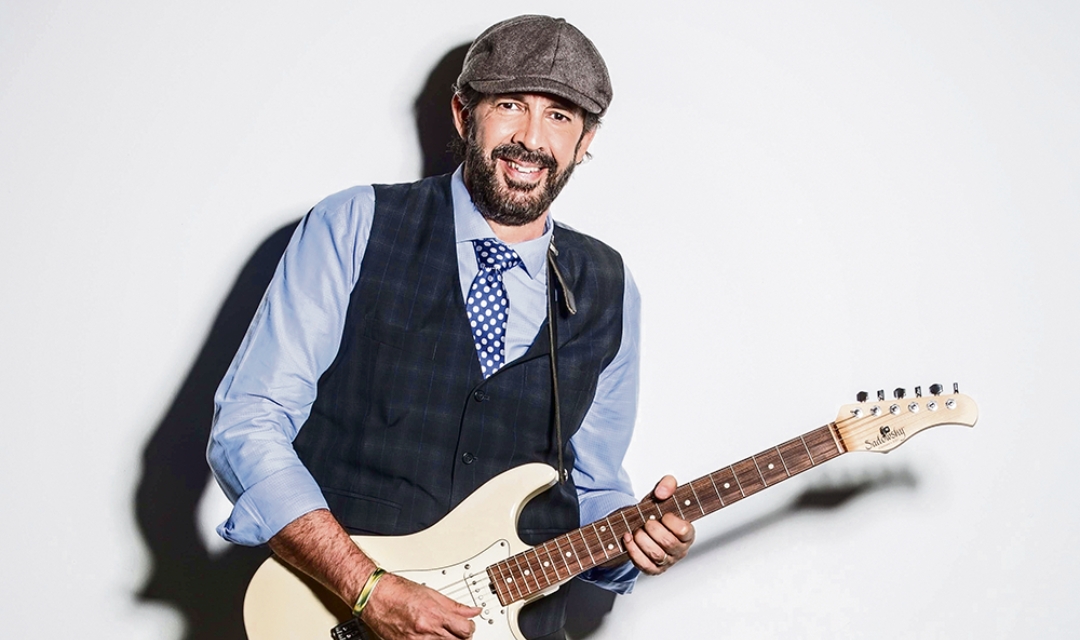Juan Luis Guerra’s career began to take shape in the early 1980s when he formed the band 440, a name that blends his love for music with the frequency of an A note (440 Hz), a reference to his devotion to musical theory and discipline. In 1984, Guerra released his debut album, “Soplando”, but it was his second album, “Mudanza y Acarreo” (1985), that truly began to gain attention in the Dominican Republic. The album was a blend of merengue, bachata, and salsa, with a distinctive jazz influence that set him apart from other artists in the Latin music scene. His ability to combine Dominican music with international genres like jazz and pop was revolutionary and helped him carve a niche as one of Latin music’s most unique voices.
The turning point in Guerra’s career came in 1990, with the release of his album “Bachata Rosa”. This album would not only define his career but also transform the Latin music landscape. Featuring tracks like “Bachata Rosa,” “La Bilirrubina,” and “Te Regalo Amores,” the album was a commercial and critical success, catapulting him to international stardom. Guerra’s mastery of blending bachata (a traditionally Dominican genre) with sophisticated musical arrangements made the album a groundbreaking work. It garnered Grammy Awards and Latin Grammy Awards, establishing him as a leading figure in Latin music worldwide. The album also solidified Guerra as a voice for Dominican culture, and his lyrics often reflected social issues and love, resonating deeply with his audience.
Throughout the early 1990s, Guerra continued to release hit albums, such as “Areíto” (1992), which was filled with politically charged songs reflecting his desire for social change. His musical evolution remained deeply connected to his cultural roots while maintaining a broad appeal across various Latin music markets. Guerra’s ability to merge merengue, bachata, and salsa with jazz, pop, and funk influences resulted in a diverse discography that appealed to a global audience. His 1998 album, “Ni Es Lo Mismo Ni Es Igual,” marked a new chapter in his career, exploring different musical textures while maintaining his signature sound. His creative prowess and genre-blending style earned him numerous accolades, including Billboard Latin Music Awards.
By the mid-2000s, Guerra had firmly established himself as an international music icon, with a career that spanned over two decades. His 2004 album “La Llave de Mi Corazón” was another major success, both commercially and critically. The album included the hit single “La Llave de Mi Corazón” and further cemented Guerra’s reputation for delivering heartwarming and socially conscious music. The album received the Latin Grammy Award for Best Merengue Album and brought Guerra his first Grammy Award for Best Latin Pop Album. His music, which combined his deep love for his Dominican heritage with universal themes of love, loss, and hope, had begun to earn him recognition beyond Latin America, appealing to a global audience that embraced his unique blend of rhythms and melodies.
In 2010, Guerra released “A Son de Guerra,” another widely praised album that featured a mix of merengue, bachata, salsa, and jazz elements, maintaining his musical diversity. The album was well received by critics and audiences alike, producing multiple hit singles, including “Bachata en Fukuoka” and “La Guagua.” The album’s success led to another series of awards, including the Latin Grammy Award for Best Contemporary Tropical Album. Guerra’s ability to evolve with the times while staying true to his musical roots proved that he had staying power in an ever-changing industry. His tours continued to be highly successful, selling out venues in the Americas and Europe, and his concerts were filled with fans who appreciated both the energetic performances and the deeply emotional connection that Guerra established with his audience.
By the time “Todo Tiene Su Hora” was released in 2014, Guerra had already cemented his place as one of the most influential Latin musicians of his time. This album was a reflection of his maturity as an artist and his journey through both personal and professional growth. Featuring the hit songs “Todo Tiene Su Hora” and “Kitipun,” the album blended a variety of genres but focused heavily on merengue, which was one of Guerra’s early musical loves. “Todo Tiene Su Hora” was highly anticipated and received critical acclaim for its timeless sound and deep lyricism. Guerra’s ability to create music that spoke to universal themes of love, struggle, and triumph was evident once again.
In recent years, Guerra has continued to push the boundaries of Latin music, releasing “Literal” in 2019, which was lauded for its modern sound and eclectic mix of genres. Songs like “Kitipun” and “La Travesía” continued to showcase Guerra’s unique ability to mix traditional Dominican sounds with contemporary global influences. “Literal” was another commercial success, maintaining Guerra’s standing as a top figure in Latin music. Despite being in the business for decades, Guerra’s continued success speaks to his ability to adapt to the evolving landscape of Latin music while maintaining the authenticity of his roots.
Guerra’s career is not just marked by musical success but also by his humanitarian efforts. He has used his platform to support various causes, including the fight for children’s rights and the promotion of education in the Dominican Republic. His foundation, “Juan Luis Guerra Foundation,” supports numerous initiatives, especially those focused on healthcare and children’s welfare. Guerra’s music continues to have a profound impact on Latin music and culture, and his career is a testament to the power of musical innovation, authenticity, and dedication to cultural roots. His lasting influence on Latin music, particularly in how he redefined the genres of merengue and bachata, is unparalleled.










